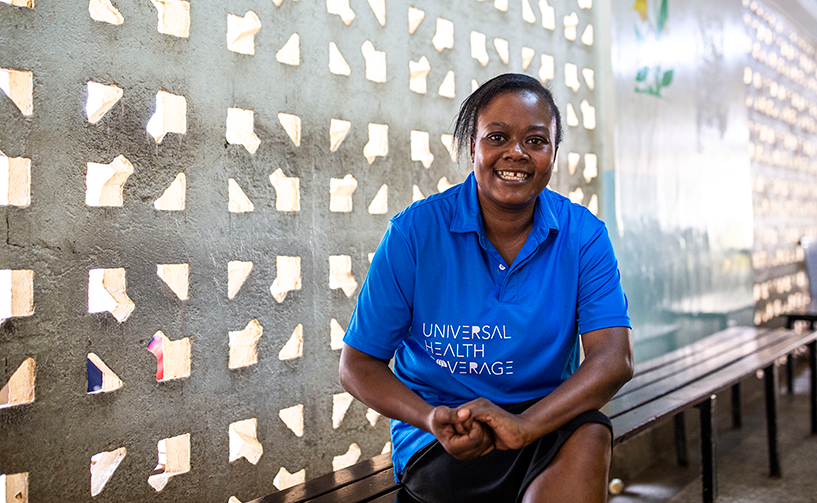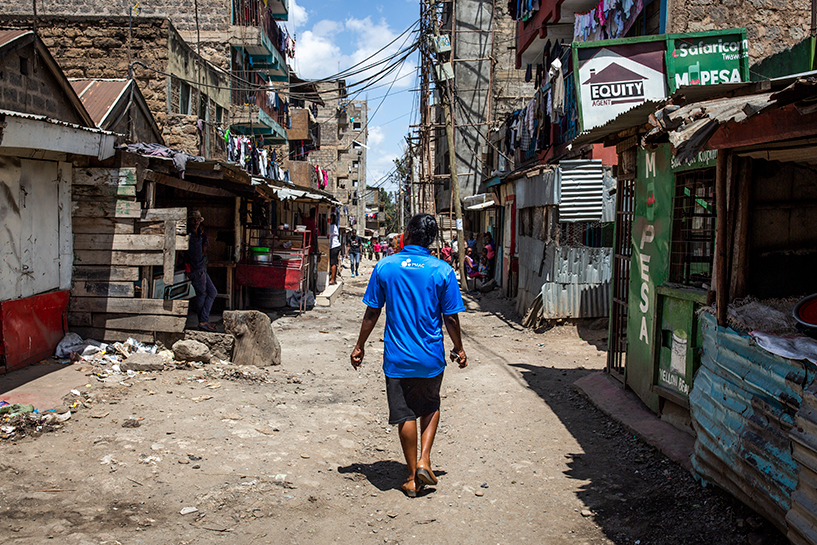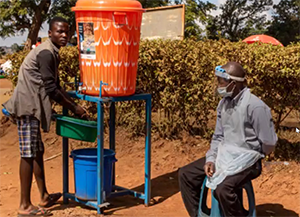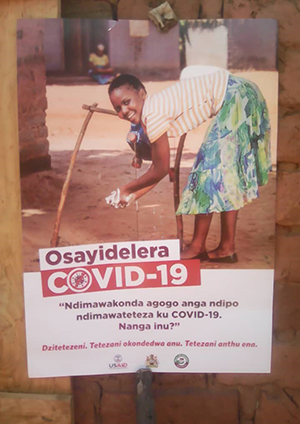Frontline Health Workers Call for Improved WASH to Fight COVID-19
Frontline Health Workers Call for Improved WASH to Fight COVID-19

Health workers not only need water, sanitation, and hygiene (WASH) services to prevent the spread of COVID-19 right now but also to provide safe essential health services every day. But 25% of health facilities around the world lack basic water services. One in six facilities doesn’t have hand hygiene services, such as soap and water or alcohol-based hand rub, available at points of care. And health workers in facilities in sub-Saharan Africa face even greater WASH challenges.
Two frontline health workers—Margaret Odera and Dr. Ann Phoya—recently called for improved WASH services during an event alongside the 75th United Nations General Assembly. Read on to find out what it’s like to be a health worker on the frontlines without WASH and the steps they are taking to access and improve WASH in Kenya and Malawi.
Margaret Odera, Community Health Worker, Kenya
“Access to WASH is very important to me as a community health worker and mother living with HIV,” explains Margaret Odera, community health worker and mentor mother at Mathare North Health Center. Margaret spends her days mentoring HIV-positive mothers and monitoring their progress on preventing mother-to-child transmission in her neighborhood in Nairobi. “WASH protects immunocompromised people like me and others in my community from disease. Lack of access to clean water and adequate WASH is not only a barrier to being able to treat people — it is a risk for us health workers. We need access to WASH to protect ourselves so we can help more people.”
But over the last few months, COVID-19 and ongoing health worker strikes in Kenya related to COVID-19 have drastically affected access to WASH in Margaret’s health facility.
“Last week, there were no nurses, clinical officers, or pharmacists in the facility because of the strike. The pharmacy and the store never opened, which meant there was no access for community health workers like me to soap or water treatment tablets,” she says. “There has also been no sanitizer in the facility for two months now, so I don’t have any sanitizer…when I go out into the community to do my work. I must buy it myself. But I am currently a volunteer community health worker and this is not sustainable.”
There is an acute water shortage in Mathare, where Margaret conducts her home visits. Over 165,000 people live there, making it one of the most populated areas in Nairobi. “I pass open and blocked sewer systems on several streets on my way to and from the facility,” she explains. “I can’t even get into the homes of the people I’m supposed to be helping, and I must counsel HIV-positive mothers by standing across from open sewage. Some mothers will not come out to talk with me because they don’t want others to hear what we are discussing [preventing mother-to-child transmission of HIV].”

While COVID infection rates are decreasing in Mathare, Margaret has concerns over the uncertainty of when the strikes will end and an increase in other diseases will occur.
“Diarrhea in children is now on the increase here,” she says. “In September alone, and even today, I referred 27 children under the age of 5 with acute diarrhea to other facilities. This is a big concern for me. I expect a cholera outbreak is right around the corner. And no one is certain when the health worker strikes will stop.”
Dr. Ann Phoya, Malawi, Management Sciences for Health
The MSH-led Organized Network of Services for Everyone’s (ONSE) Health Activity, USAID/Malawi’s flagship program for health, supports the Government of Malawi in its efforts to reduce maternal, newborn, and child morbidity and mortality. Since its inception, ONSE has been involved in WASH as hospital-acquired infections and water-born diseases are a challenge in the country. According to Dr. Ann Phoya, ONSE’s Deputy Director, “When we are developing or implementing any health activities, we need to address issues of water and WASH because water is life. With the onset of the COVID-19 pandemic, we scaled up our WASH activities to support both health workers and communities and put crucial preventive measures such as hand washing into practice.”

To support a clean clinic approach, complying with universal infection prevention and control (IPC) practices, ONSE oriented direct supervisors and health center management committees to the importance of IPC and WASH. Dr. Phoya notes that in 39 health centers, “we have already repaired non-functioning water reticulation systems and across multiple districts established handwashing facilities. We have also provided 20 liter water storage buckets, chlorine, soap, and cleaning materials,” increasing availability of safe water and sanitation in facilities.

To improve WASH at the community level and empower local leadership, ONSE provides grants to local groups to conduct information, education, and communication campaigns to promote awareness and health behavior changes. “Around 1,868,255 people have been reached with COVID-prevention messages through use of multimedia approaches, such as print and electronic media,” explains Dr. Phoya. And to sustain message dissemination, “ONSE has empowered local leadership, such as village health committees, area development committees, health center management committees, and community health action groups to take a leading role in community-based social behaviour change communications, as well as to champion the integration of WASH facilities when constructing improved latrines.”
Village development committees were each given 20 posters to promote handwashing, mask-wearing, and social-distancing in their communities. Another grantee received funding to improve pit latrines in the community by attaching a ‘Tippy Tap,’ or handwashing station, near household latrines. “Another creative intervention by communities,” Dr. Phoya explains, “was utilizing those with motorcycles to conduct awareness campaigns using a megaphone. The grant provided funding to buy batteries for those megaphones, as well as fuel for the motorcycles.”
Stories from the frontlines of the COVID-19 pandemic showcase the direct link between individual security and global health security. Read more about the event and key takeaways from all the panelists by reading the event recap blog or watch the event recording.